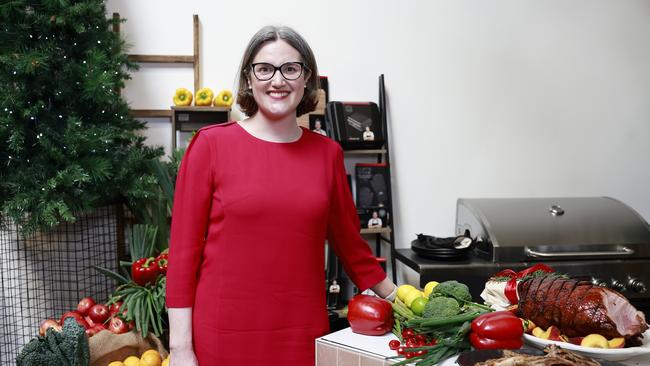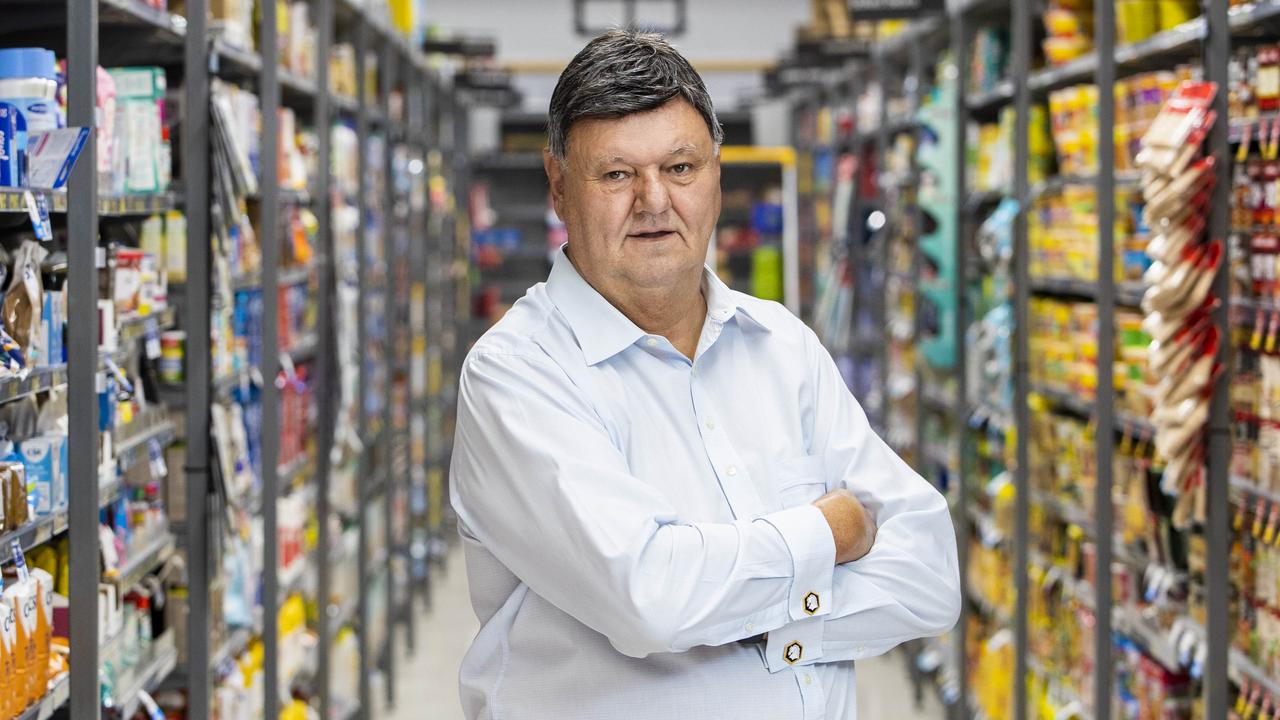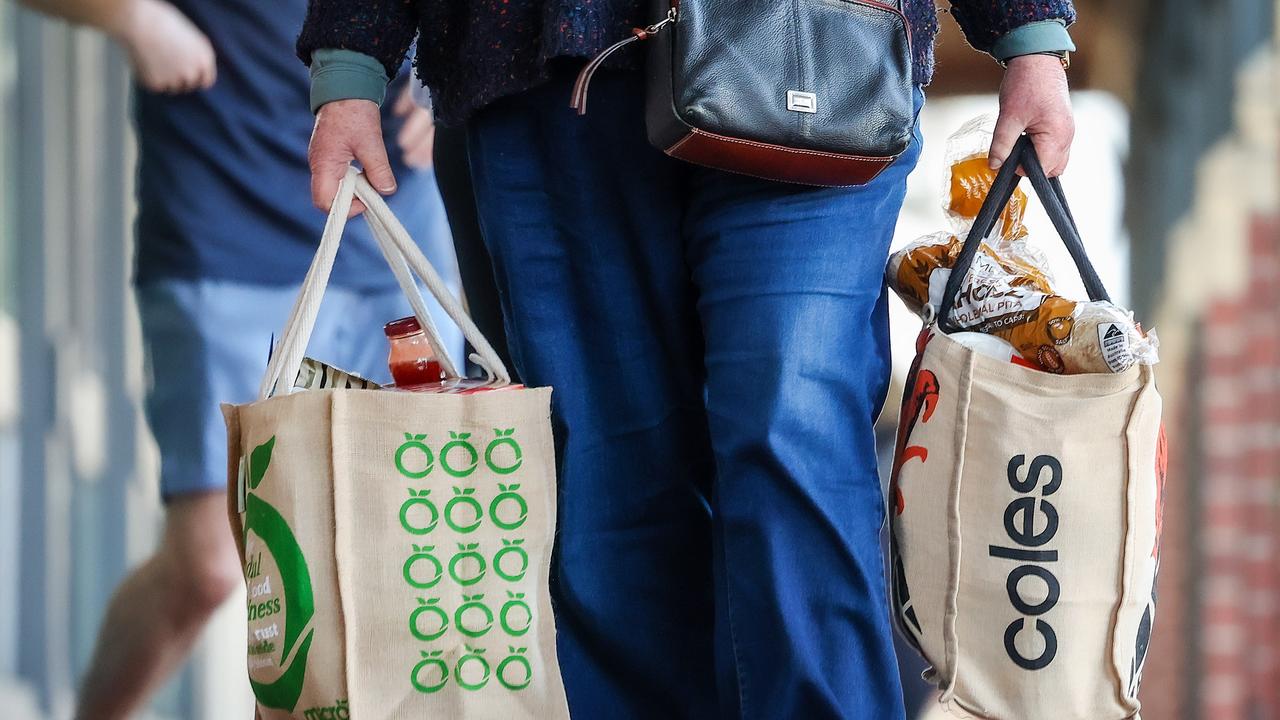Supply chain, household pressure challenges for Coles
While cost of living is challenging, there are a suite of issues such as supply chain fragility during natural disasters facing retail giant Coles – as its boss, Leah Weckert, explains.

How is inflation and the prospect of higher-for-longer interest rates affecting your business? Importantly, is the behaviour of your customers changing?
We are pleased that inflation is moderating in key categories, including fresh produce and red meat. In our most recent quarterly results, we reported a total supermarkets inflation figure of 3.1 per cent for the quarter, down from 5.8 per cent in the previous quarter.
We anticipate that cost-of-living pressures may continue to be felt by many Australian households, and we will continue to focus on delivering trusted value. This includes through our value campaigns, everyday prices, weekly specials and promotions, personalised Flybuys offers and our exclusive brand range.
We know from our consumer insights surveys that customers are increasingly eating and entertaining at home, seeking out loyalty points and bonus offers, and looking for more affordable alternatives as they seek value in response to cost-of-living pressures.
How would you rate the shape of the Australian economy as we head into the New Year?
We know many Australian households are facing significant cost-of-living pressures with rising inflation, mortgage payments, fuel and energy costs. However, we are optimistic overall about the resilience of the economy and in particular, non-discretionary sectors like supermarkets.
After a number of years of low growth during the pandemic, we expect population growth to support the labour market and continued demand.
What do you think is the big area of reform needed to happen so the Australian economy (and your business) can sustainably reach full potential?
Over the past year alone, we have witnessed the fragility of supply chains across Australia. Rail outages and road closures have challenged our supply chain and hampered the transportation of food and groceries.
As we face into a summer with a greater risk of fire and heatwaves, we have been working with government and with our suppliers to prepare.
Despite our best efforts to ensure we have a sufficient volume of goods in our stores and distribution centres, reliable rail and road infrastructure is critical to enable communities, particularly those impacted by natural disasters, to have access to groceries.
We encourage all governments to continue to invest responsibly in critical infrastructure and prioritising supply chain resilience.
Australia has six years to meet its 2030 targets for a 43 per cent reduction in baseline emissions. What needs to happen here?
In my view, both industry and government are deeply engaged in the transition to a net-zero emissions economy. Six years is not a long time to deliver on Australia’s 2030 targets, and significant and co-ordinated efforts will be needed by multiple parties across multiple areas, including in policy reform, asset investment and in systems and processes.
At Coles, we are committed to reducing our emissions and this year achieved a 27.7 per cent reduction in our Scope 1 and 2 emissions from FY22 and set a Scope 3 supplier engagement target.
What level of adoption is your business currently at with the use of AI technology?
We are excited about the possibilities of artificial intelligence, particularly in its potential to help provide customers with a personalised shopping experience.
For example, by personalising our Flybuys offers to customers who have opted into Weekly Specials emails, we can improve our communication and make it more relevant to them.
We have also integrated AI into our stock replenishment system which forecasts customer demand on products in store. By helping us order what we need only when we need it, we can ensure maximum shelf life, greater availability and less waste.
What external issues do you expect to impact or disrupt your business in the next 12 months – the so-called 3am thought?
The Covid-19 pandemic, extreme weather events and natural disasters have demonstrated the necessity of business continuity plans to ensure critical supplies, including food and groceries, can continue to be accessed by local communities.
The Bureau of Meteorology has predicted an increased risk of fires and heatwaves this summer.
For many months we’ve been working internally, with government, and with our suppliers to prepare for these scenarios. We’ve increased the supply of products that are most in demand during natural disasters, such as water and have created additional storage in our stores.
At Coles we have a dedicated and experienced team whose role it is to co-ordinate our response to natural disasters.
It is this level of planning and investment in resources that provides our business with the confidence to respond to future challenges.
Is business getting the balance right between investor, customer and other stakeholder demands when it comes to ESG issues?
We saw the “S” come to the fore during the pandemic as we worked hard to support our customers and community during unprecedented challenges.
The “E” has also been brought into sharp focus in recent years, with investors and other stakeholders increasingly challenging business to take meaningful action on climate change and to set clearly defined targets that are aligned with net zero ambitions.
In our view the “G” is paramount, and more than ever is crucial to successfully navigating ESG issues. This is especially true, given the new reporting standards will require companies to disclose in detail their governance frameworks with respect to oversight of climate-related risks and opportunities.
At Coles, governance is fundamental to everything we do. Our corporate governance framework and risk management policies and processes support the effective operation and management of our business and enable us to create value for all our stakeholders.
How has your organisation’s approach to staff working from home evolved since the pandemic?
At Coles, we have a flexible working policy for team members and we are committed to supporting every team member to work flexibly, as far as practicable.
We have made significant investments in technology to allow our support centre team members to work flexibly. More and more team members are choosing to attend the office a few days a week to collaborate and attend events in person again.
Leah Weckert is Coles Group chief executive







To join the conversation, please log in. Don't have an account? Register
Join the conversation, you are commenting as Logout